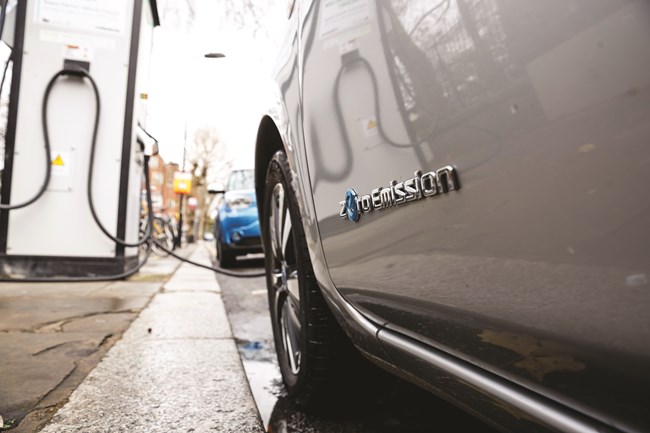
The start point for the best source of fleet information |
Majority of company car drivers keen on alternative fuels, survey finds
Date: 04 October 2019 | Author: Sean Keywood

Well over half of company car drivers are more likely to choose an alternatively fuelled car for their next vehicle than one with a conventional petrol or diesel engine.
That's according to a survey of more than 1,300 company car drivers by fleet management company CLM.
The research found that 60% of drivers will be happy to have an electrified car when their time with their existing vehicle comes to an end.
According to CLM commercial director Andy Short, there are a number of factors driving this increase in popularity.
He said: "Senior stakeholders in many organisations are seeking to increase the proportion of alternatively fuelled vehicles (AFVs) on their fleet for environmental reasons, and company car drivers are keen to take advantage of the tax savings on offer by selecting these vehicles.
"This demand is being supported by improvements in technology, which mean that even pure electric vehicles are becoming a viable option for the majority of drivers' journey profiles.
"Reductions in delivery times, falling prices and more robust residual values are making AFVs a more compelling option for both employers and employees.
"In fact, more than half of the company car drivers in our survey stated that the key factor influencing the timing of taking an AFV was simply the end of their current vehicle contract."
Despite these factors, Short acknowledged that there are still a range of issues that are maintaining the gap between intention and action when it comes to choosing AFVs, which still accounted for less than 10% of total UK registrations in August according to the Society of Motor Manufacturers and Traders.
Short said: "From an employer's perspective, list prices for AFVs remain higher than their ICE equivalents and, while residual values have been improving, they are not strong enough to bring headline rentals in line with those of traditional vehicles, particularly with the low levels of manufacturer support currently available.
"This puts pressure on car policies, as fleet decision-makers attempt to improve availability of AFVs within the restrictions of seniority-based monthly rental bands. That's why we're only seeing plug-in hybrids available on around 60% of choice lists and battery electric vehicles on around 40%."
Short added that the fleet industry should not excessively downplay the choice of vehicles available at the moment, in advance of an expected increase in models available over the next couple of years.
He said: "Improvements in vehicle lead-times have been welcomed, but the current perception of lack of vehicle choice is being exacerbated to some extent by promotion of the much wider choice that's just around the corner.
"There are already some fantastic AFV options available and the fleet industry needs to do more to promote these to drivers."
Turning to other concerns, CLM found in separate research that more than 50% of drivers believed that using an AFV every day would be less convenient than using a petrol or diesel car.
Short said: "From the driver's side, while there are significant tax incentives for selecting EVs in particular, there still appears to be a gap in knowledge regarding how well these vehicles perform as daily drivers.
"This probably explains why only 19% of respondents stated that they would be most likely to select a battery EV, while plug-in hybrids were favoured by 31% and the remaining 50% preferred a non-plug-in hybrid."
CLM's research also found that there are ongoing concerns over the availability of charging infrastructure, with more drivers citing this as the key disadvantage of AFVs than any other factor.
Short said: "With so many drivers living in areas with no off-street parking, they rely on public charge points and on employers offering charging facilities on site.
"We work with clients that face significant issues in providing this, due to restrictions in underlying power infrastructure, availability of space and even in removing historic 'perk parking' spaces for senior managers; these inevitably occupy the spots closest to the building which would be the most pragmatic location for charging points."










